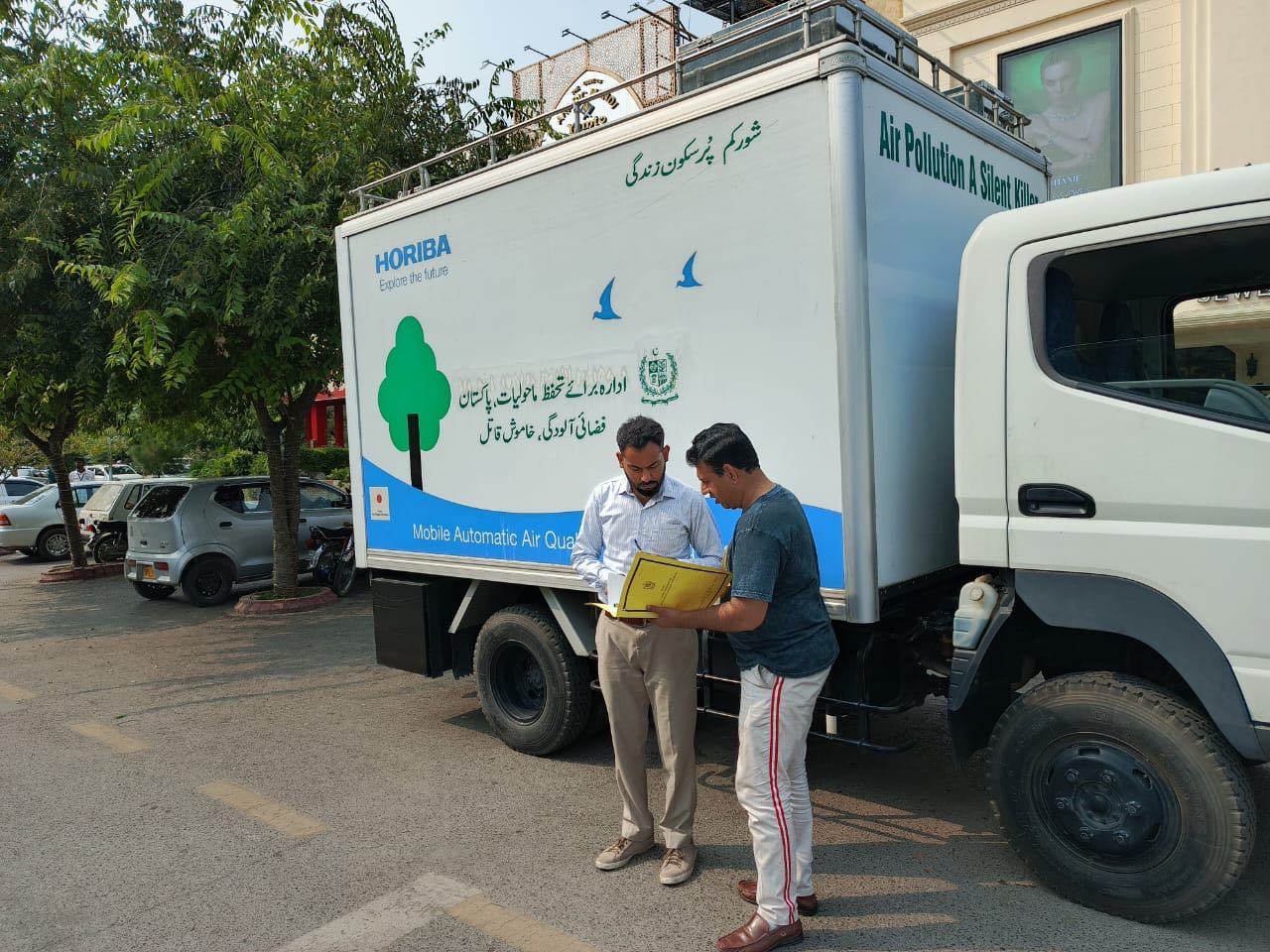 Islamabad, October 30, 2024: Taking serious notice of the rapidly worsening air quality in recent days in the capital city and its surrounding areas, Coordinator to Prime Minister on Climate Change, Romina Khurshid Alam has directed the Pakistan Environmental Protection Agency to take necessary measures to cope with the issue in coordination with relevant official stakeholders including Islamabad Capital Territory Administration and Capital Development Authority, according to a press statement issued here on Wednesday by the climate change & environmental coordination ministry.
Islamabad, October 30, 2024: Taking serious notice of the rapidly worsening air quality in recent days in the capital city and its surrounding areas, Coordinator to Prime Minister on Climate Change, Romina Khurshid Alam has directed the Pakistan Environmental Protection Agency to take necessary measures to cope with the issue in coordination with relevant official stakeholders including Islamabad Capital Territory Administration and Capital Development Authority, according to a press statement issued here on Wednesday by the climate change & environmental coordination ministry.
The deteriorating air quality of Islamabad from the onset of mid-October has particularly started worsened further, leaving the city’s ambiance murky with increasing pollution, dust and vehicular emissions raising alarm bells for smog risk, the PM’s climate aide noted.
The poor air quality in Islamabad, like many urban areas, can be attributed to several factors. The main causes include ehicle emissions, industrial pollution, construction dust, burning of waste and crop residue.
Addressing these drivers of bad air quality in the city requires stringent enforcement of the relevant environmental regulations and fines. And, adoption of better waste management practices and public awareness campaigns to combat pollution effectively are essential to compliment the air quality improving measures.
Romina Khurshid Alam urged the city dwellers to play their part by avoiding burning of waste and crop residue.
She also urged the city’s waste collection authorities to regularly collect the waste from designated points and dispose of it properly on environmentally sustainable and scientific manner to avoid its burning by the people in streets.
Pak-EPA officials said that efforts are being taken to tackle the growing air pollution in the capital city for protection of public health from its hazardous impacts.
In a press statement, they said that air quality monitoring is being conducted on regular basis through mobile station and low cost qir quality monitoring sensors across the city.
The data collection through the Pak-EPA’s air quality monitoring network focuses on key pollutants and environmental factors impacting public health, including Particulate Matter (PM2.5 and PM10), Carbon dioxide (CO2), temperature, and relative humidity.
Findings obtained by AQI data showed that PM2.5 levels ranged between 55.25- 66.5 µg/m³, while PM10 ranged from 58-74.1 µg/m³. Carbon diaoxide (CO2) levels in the air were recorded between 528.25- 577.5 ppm whereas the temperatures ranged from 27.25-30.5 °C, and relative humidity was between 36.5- 40.83%.
“Calculated AQI values indicated that PM2.5 and PM10 levels were in the Moderate range, primarily affecting sensitive individuals, such as the elderly and those with respiratory conditions,” senior Pak-EPA official say.
The findings underscore the urgency of addressing Islamabad’s air pollution to safeguard public health, particularly given the harmful PM2.5 levels, according to the Pak-EPA official.
The Pak-EPA official also said that the city’s environmental watchdog’s Environmental Monitoring Team (EMT) has conducted on October 28 a monitoring exercise with focus on on vehicular emissions from heavy transport vehicles at the Mandi Morr entry point, Sector I-11, Islamabad.
This monitoring was carried out in collaboration with the Islamabad Traffic Police (ITP) to address the smog issue so as to enhance the capital’s air quality. During such exercise, the team also assessed the smoke emitted by diesel-fueled heavy vehicles, using the Ringlemann scale for evaluation and measured noise emissions with a dedicated noise meter, the official added.
The Pak-EPA official said further that during the checking of the polluting vehicles, 36 vehicles out of 50 were fined for surpassing the permissible limits set by NEQS as a part of Pak-EPA’s broader strategy to combat smog issue, ensure cleaner air and promote public health through targeted pollution control measures.
The capital’s environmental watchdog said that the Capital Development Authority (CDA) is currently implementing in several major construction projects including the widening of Park Road, the construction of 10th Avenue and preliminary work on the widening of I.J.P Road. Additionally, new flyovers are being constructed simultaneously.
These construction activities are contributing to traffic congestion, which in turn lead to increased vehicular emissions, noise pollution and dust emissions, ultimately deteriorating the air quality in Islamabad. But, the relevant authorities have been requested to take all-out measures to mitigate air and noise pollutions for improving air quality and protecting public health, the Pak-EPA official emphasized.
Meanwhile, the PM’s coordinator on climate change Romina Khurshid Alam urged all the relevant government departments to collaborate with the Pak-EPA to strengthen regulatory measures to enforce stricter emissions standards, promoting cleaner transportation options, and implementing public awareness programmes on pollution’s hazardous health impacts.
Editor: Kamran Raja